- News
- Reviews
- Bikes
- Accessories
- Accessories - misc
- Computer mounts
- Bags
- Bar ends
- Bike bags & cases
- Bottle cages
- Bottles
- Cameras
- Car racks
- Child seats
- Computers
- Glasses
- GPS units
- Helmets
- Lights - front
- Lights - rear
- Lights - sets
- Locks
- Mirrors
- Mudguards
- Racks
- Pumps & CO2 inflators
- Puncture kits
- Reflectives
- Smart watches
- Stands and racks
- Trailers
- Clothing
- Components
- Bar tape & grips
- Bottom brackets
- Brake & gear cables
- Brake & STI levers
- Brake pads & spares
- Brakes
- Cassettes & freewheels
- Chains
- Chainsets & chainrings
- Derailleurs - front
- Derailleurs - rear
- Forks
- Gear levers & shifters
- Groupsets
- Handlebars & extensions
- Headsets
- Hubs
- Inner tubes
- Pedals
- Quick releases & skewers
- Saddles
- Seatposts
- Stems
- Wheels
- Tyres
- Health, fitness and nutrition
- Tools and workshop
- Miscellaneous
- Buyers Guides
- Features
- Forum
- Recommends
- Podcast
review
£4,675.00
VERDICT:
Stiff aluminium bike with nimble handling and a fun ride – and a fully customisable spec
Nimble handling
Stiff
Balanced geometry
Light
Beautiful looks
Frameset price is higher than others
Weight:
8,250g
Contact:
At road.cc every product is thoroughly tested for as long as it takes to get a proper insight into how well it works. Our reviewers are experienced cyclists that we trust to be objective. While we strive to ensure that opinions expressed are backed up by facts, reviews are by their nature an informed opinion, not a definitive verdict. We don't intentionally try to break anything (except locks) but we do try to look for weak points in any design. The overall score is not just an average of the other scores: it reflects both a product's function and value – with value determined by how a product compares with items of similar spec, quality, and price.
What the road.cc scores meanGood scores are more common than bad, because fortunately good products are more common than bad.
- Exceptional
- Excellent
- Very Good
- Good
- Quite good
- Average
- Not so good
- Poor
- Bad
- Appalling
The Condor Italia RC Disc is nimble, twitchy and exciting to ride fast. Aimed at racers, the frame is stiff and very well balanced, providing direct handling that makes the bike great in tight corners. The Campagnolo Chorus groupset impressed me with its braking and snappy shifting, but if you'd prefer something else, don't worry – you can choose whichever components you want.
The Italia RC Disc is available to buy as a frameset, for £1,199.99, or with a fully customisable spec, allowing you to build up the bike on Condor's website to your budget or component preferences. So if the components that we have on this build aren't for you, you can change things easily.
Ride
A few miles of riding left me in no doubt that this is an out-and-out race bike. The frame and fork are stiff, a rather tight wheelbase keeps things fun, while the 8.2kg overall weight is very respectable for an aluminium disc brake bike.
I'm not the biggest rider out there at just 62kg, but I still prefer a stiff frame for attacking climbs. The Italia RC Disc doesn't disappoint, responding quickly when you stamp on the pedals with no hint of flex at either the bottom bracket or the front end. It's a nice reminder that aluminium is far from inferior when it comes to frame construction.
I've been mainly heading towards the hills when I've ridden the Italia RC Disc. It's not that the bike doesn't ride well on the flat – it holds speed around the 30kph mark perfectly easily – it's just that it climbs so beautifully, with a flick that rewards out of the saddle efforts on the steep climbs that we have here in the Mendips.
The semi-compact (52/36-tooth) chainset, paired with a decently wide 11-32T 12-speed cassette, helps here. I had the gears I needed to maintain a good cadence on the steepest slopes, though you could always spec a compact chainset (50/34T) should you want to go lower.
If stability is what you're looking for then the Italia RC Disc might not be for you. It was designed to be lively and that is exactly what it is, suiting those who like tight corners and dynamic climbing.
The frame geometry is anything but slack, though you can still achieve a comfortable riding position thanks to the relatively tall 165mm head tube. It made for a position that was comfortable both in the drops and on the hoods, even though I had removed all the spacers from under the stem.
Condor is using the traditional method for sizing its frames so this 55cm frame comes with a 55cm seat tube. The top tube is marginally longer at 55.5cm. This translates into a stack of 56.6cm and a reach of 38.7cm. Pleasingly, for fans of symmetry at least, the head tube and seat tube angles are identical on this 55cm model at 73 degrees.
> Bike geometry 101: Why stack and reach are important
Condor keeps the chainstay length at 40.5cm for sizes 46 to 55, before lengthening them to 40.8cm and 41cm for sizes 58 and 61 respectively.
What does that all actually mean? Well it's got quite a comfortable reach and is slightly on the taller side, but keeps things fun with a tight wheelbase. It's best suited to riders who prefer a quick smash in the hills to those who want to tick off long miles.
Frame and fork
The frame, as you might already have noticed, is a proper double triangle that will please the haters of the trend for dropped seatstays. 'Handmade in Italy', the double-butted 7000-series high-performance aluminium frame is paired with a bladed carbon fork with a 1 1/8 to 1 1/2in tapered head tube.
Mechanical and electronic systems are both catered for – cable routing for the brakes (and electronic shifting, if you were to choose it) is internal, while mechanical shift cables run externally.
While the exposed shift cables might not look quite as tidy as internal routing, it does make adjustments and maintenance so much easier.
The flat mount discs are set up for 140mm rotors, though 160mm rotors can be used with adapters, and the frame is finished with a lovely imprinted Condor logo down by the rear brake. (For those who aren't fans of disc brakes, Condor still makes a rim-brake frameset.)
The finish on the Italia RC Disc is very pleasing to the eye, with lovely touches that make it look very well made. The way the frame welds are smoothed at the head tube and seat tube give the frame a high-quality look.
The Italia RC Disc uses what is now the unofficial road bike standard of 12x100mm and 12x142mm thru-axles along with a BSA threaded bottom bracket shell for simple maintenance. This might seem like a simple feature, but I'm a big fan of a threaded bottom bracket. I certainly couldn't feel any loss from a pressfit system.
Groupset
Our Campagnolo Chorus-equipped bike with Campagnolo's WTO 33mm carbon wheels is a very nice build, but as I said up top, if you want something different – and I have to say this wouldn't be my preferred build – you can spec what you want on Condor's 'Build a Bike' site. It's like those 'Build-A-Bear' stores, but you'll spend a lot more and come away with something far more useful.
Campagnolo's Chorus 12-speed disc brake groupset is a beautiful collection of carbon, but I do have a few gripes with what is a £1,275 option on Condor's website.
The first is with the shifter where, although the hood ergonomics are generally very comfortable, there is a large bump where the shifter body meets the bar. I found it uncomfortable, sitting right against the heel of my palm.
The shifting, on the other hand, is great. It's the snappiest shifting that I've used and there are some neat multi-shift functions built in too. These allow you to flick through a huge five sprockets on the downshift and three on the upshift. How often you might wish to use this functionality might be limited, but I found it very useful when cresting a hill. The rapid dumping of the chain down five gears allows you to surge over the top of climbs.
The actual action of shifting using Campagnolo Chorus is pretty easy to get used to too. The finger and thumb paddles are quick to actuate a shift, so only a small press is needed. You also get a reassuring click. This is easily one of the most positive mechanical groupsets that I've used.
It's not all roses. I'm really not a fan of the thumb paddle on the right hand when sprinting – with my hands in the drops, I found it very difficult to reach. This isn't ideal when racing for a (town sign) finish line, as I was often left focusing more on finding the shifter than getting the power down. It's personal preference, but I simply find the finger-operated paddles on Shimano and SRAM shifters easier to access.
While I know Campagnolo holds a dear place in many a rider's heart, this Chorus disc brake mechanical groupset wouldn't tear me away from my Shimano Ultegra R8070 Di2 disc group. Ultegra R8020, the disc brake with mechanical shifting, costs less at £925, a significant saving over the Chorus equivalent.
Wheels
If you want to highlight a race frameset then a top-end £1,749.50 set of wheels should do the trick. Campagnolo's WTO 33 Disc wheels are sublime, combining a fast ride with trouble-free handling, good support for wider tyres, and low weight that helps when accelerating out of corners and when heading uphill.
The rim features Campagnolo's 2-Way Fit technology. That is to say, the wheels are tubeless-ready and benefit from a 19mm internal width and no spoke holes in the rim bed. That means there's no need for rim tape, making tubeless tyre installation far easier.
These are shod with Vittoria's Corsa Control G2.0 tyres in a 28mm width – the maximum width specified for the Italia RC Disc, and I'd suggest you use every millimetre. You can run them at lower pressures than narrower tyres, which helps to hide some of the harshness that such a stiff frame can produce.
Finishing kit
Our test bike is decked out in Fizik finishing kit, with an aluminium Cyrano R1 bar (bull shape) and R3 stem, along with a carbon Cyrano R1 seatpost, topped with Fizik's Antares R3 saddle.
The components at the front end are light and stiff and I especially liked the 'bull' shape of the Cyrano R1 bar. It provides a short reach and easily accessible drops for a comfortable position. The tape that it is wrapped in was a little hard for my preference – it's been chosen for the classic look but I'd prefer something cushier.
I've never been a fan of Fizik's Arione – I just don't get on with it – but it's a very popular saddle. I did like the seatpost, though, with its easily adjustable tilt and good vibration damping on rougher tarmac.
Value
While the price of this build is very high for an aluminium disc brake bike, the only way to really judge the value fairly is by comparing it with other framesets.
At £1,199.99 it's more expensive than the Cannondale CAAD13 Disc, at £999, although the Condor's frame joints look far tidier (and personally I'm not a fan of the colour of the Cannondale).
> Buyer’s Guide: 25 of the best production framesets to build into your dream bike
Trek's Emonda ALR costs even less, at just £800. That's a big chunk of cash to save that could be spent on components, so if you're restricted by a tight budget then the Emonda would be worth considering.
Conclusion
Condor's Italia RC Disc is a very good aluminium frameset that, in this build, has been a joy to ride in the hills. The handling is sharp and it is genuinely fun to ride – and you don't have to spend nearly five grand to enjoy it: with a massive range of components to pick from, you can spec it to your heart's desire.
Verdict
Stiff aluminium bike with nimble handling and a fun ride – and a fully customisable spec
If you're thinking of buying this product using a cashback deal why not use the road.cc Top Cashback page and get some top cashback while helping to support your favourite independent cycling website
road.cc test report
Make and model: Condor Italia RC Disc
Size tested: 55cm
About the bike
List the components used to build up the bike.
Frame Condor double-butted 7000 series high performance aluminium
Fork Condor straight bladed full carbon monocoque
Frame weight 1480g
Fork weight 350g
Sizes 46, 49, 52, 55, 58, 61cm
Colours Midnight Blue
KEY FEATURES
Internal cabling on top tube
Clearance for 30mm tyres
Tapered head tube
Race geometry
Mechanical and Di2/EPS compatible
TECHNICAL DETAILS
Bottom bracket: BSA
Seat tube (internal): 31.6mm
Seat tube (external): 34.9mm
Front derailleur attachment: band on
Headset: 1-1/8" to 1-1/2" integrated
O.L.D.: 142mm
Thru-axles: 12x100mm (front); 12x142mm (rear)
Disc brake mounts: flat mount
Groupset: Campagnolo Chorus 12-speed mechanical with hydraulic disc brakes
Wheels: Campagnolo Bora WTO 33mm Disc
Tyres: Vittoria Corsa Control G2.0 28mm
Saddle: Fizik Arione
Seatpost: Fizik Cyrano R1 Carbon
Bar: Fizik Cyrano R1 Bull
Stem: Fizik R3
Tell us what the bike is for and who it's aimed at. What do the manufacturers say about it? How does that compare to your own feelings about the bike?
Condor says, 'Handmade in Italy'
'Constructed from state-of-the-art 7000 series aluminium, our race-orientated frameset is stiff and superbly light. Remodelled with a tapered head tube and new smoother, lighter tubing, the Italia RC Disc will accelerate up to speed quickly and stop you even quicker. Race it, ride it, or climb with it: the Italia RC offers performance by the bucket load at a price to suit every budget.'
Where does this model sit in the range? Tell us briefly about the cheaper options and the more expensive options
This depends entirely on how you spec the bike.
Frame and fork
Overall rating for frame and fork
9/10
Tell us about the build quality and finish of the frame and fork?
I love it when aluminium frames are done well. This one is brilliant. It is stiff and beautifully put together.
Tell us about the materials used in the frame and fork?
7000-series, double-butted aluminium frame with a full-carbon 1-1/8 to 1 1/2in tapered fork.
Tell us about the geometry of the frame and fork?
The geometry is race-focused, but it's still easy to get comfortable for general riding. A relatively short reach really helps here.
How was the bike in terms of height and reach? How did it compare to other bikes of the same stated size?
I found the head tube to be a touch on the tall side, though this didn't stop me from getting low on the flats. It results in a race position that isn't stupidly low.
Riding the bike
Was the bike comfortable to ride? Tell us how you felt about the ride quality.
Yes. But I feel that the comfort is massively helped by some clever component choices, like the supple 28mm tyres.
Did the bike feel stiff in the right places? Did any part of the bike feel too stiff or too flexible?
All good here. Good power transfer without feeling harsh.
How did the bike transfer power? Did it feel efficient?
It really surprised me with how planted the frame felt when putting the power down. It resulted in the bike flying out of the corners and surging forward when I attacked a hill.
Was there any toe-clip overlap with the front wheel? If so was it a problem?
Yes, but I get that on nearly every bike because I run my cleats far back.
How would you describe the steering? Was it lively neutral or unresponsive? Very lively.
Tell us some more about the handling. How did the bike feel overall? Did it do particular things well or badly?
The bike is nimble with very direct handling. It might be a bit unstable for some, but I found it great fun.
Which components had the most effect (good or bad) on the bike's comfort? would you recommend any changes?
The tyres, at 28mm, are a great choice for broken roads. Really comfortable.
Which components had the most effect (good or bad) on the bike's efficiency? would you recommend any changes?
The wheels are incredibly expensive, but they're so good. They hold speed on the flat well and spin up quickly on the climbs.
Rate the bike for efficiency of power transfer:
8/10
Rate the bike for acceleration:
8/10
Rate the bike for sprinting:
7/10
Rate the bike for high speed stability:
8/10
Rate the bike for cruising speed stability:
8/10
Rate the bike for low speed stability:
3/10
You can certainly flick it around.
Rate the bike for flat cornering:
9/10
Rate the bike for cornering on descents:
9/10
Rate the bike for climbing:
9/10
The drivetrain
Rate the drivetrain for performance:
8/10
Rate the drivetrain for durability:
6/10
Rate the drivetrain for weight:
7/10
Rate the drivetrain for value:
4/10
Tell us some more about the drivetrain. Anything you particularly did or didn't like? Any components which didn't work well together?
The spacing between the 12-speed sprockets means you need to keep the rear mech perfectly indexed.
Wheels and tyres
Rate the wheels for performance:
10/10
Rate the wheels for durability:
8/10
Rate the wheels for weight:
9/10
Rate the wheels for comfort:
9/10
Rate the wheels for value:
5/10
Tell us some more about the wheels.Did they work well in the conditions you encountered? Would you change the wheels? If so what for?
Oh they're lovely, but oh, that price. If you can afford them, they're excellent. They are light, stable, stiff and just lovely to ride.
Rate the tyres for performance:
7/10
Rate the tyres for durability:
9/10
Rate the tyres for weight:
7/10
Rate the tyres for comfort:
10/10
Rate the tyres for value:
8/10
Tell us some more about the tyres. Did they work well in the conditions you encountered? Would you change the tyres? If so what for?
I've ridden these tyres before and really liked them. They are supple and grip well in the wet.
Controls
Rate the controls for performance:
7/10
Rate the controls for durability:
8/10
Rate the controls for weight:
8/10
Rate the controls for comfort:
7/10
Rate the controls for value:
5/10
Tell us some more about the controls. Any particularly good or bad components? How would the controls work for larger or smaller riders?
The bar is particularly nice in the 'bull' shape. The short reach and drop mean that the whole bar is easily accessible.
Your summary
Did you enjoy riding the bike? Loved it.
Would you consider buying the bike? In a different spec, yes.
Would you recommend the bike to a friend? Yes
How does the price compare to that of similar bikes in the market, including ones recently tested on road.cc?
As a frameset, it's a little more expensive than Cannondale's much-loved CAAD13 (£999), and Trek's Emonda ALR is £800.
Rate the bike overall for performance:
9/10
Rate the bike overall for value:
7/10
Use this box to explain your overall score
Aluminium is still brilliant when done correctly and Condor gets it spot on with the Italia RC Disc.
About the tester
Age: 24
I usually ride: Cannondale Supersix Di2 My best bike is:
I've been riding for: 5-10 years I ride: Most days I would class myself as: Expert
I regularly do the following types of riding: road racing, time trialling, cyclo cross, commuting, club rides, general fitness riding, I specialise in the Cafe Ride!
Latest Comments
- don simon fbpe 4 min 10 sec ago
Who'd've thought that a certain whinging section (right whingers get uppity for calling them what they are) of society would resort to division,...
- Smoggysteve 6 min 47 sec ago
Sorry, I don't buy the argument about large cars. I drive an Audi Q5, a car I bought purely due to my partner having a disability. It's easy to...
- perce 20 min 47 sec ago
Aw bless. My wife and I usually go to our local M&S cafe once a week for a bite to eat, usually Wednesday but sometimes Thursday. I usually...
- Exup 1 hour 36 min ago
At least some justice is being done........
- BIRMINGHAMisaDUMP 1 hour 46 min ago
I imagine the Police treat bike theft as an insurance issue rather than a criminal issue. Can't blame them to be honest. The best thing is to use...
- David9694 2 hours 13 min ago
Police launch investigation into destruction of barber shop in Hythe High Street...
- ktache 10 hours 43 min ago
I'd love for them to put a number on that "inappropriate speed"
- Nick T 11 hours 35 min ago
They need to use some harder material for the cleat retention clip really, that's worn out long before any bearing has had a chance to fail on...
- yiipeeia 14 hours 26 min ago
I am 67 and I cycle with two groups during the year The Haddenham Easyriders International who ride during the summer on Thursday evenings, and The...
- don simon fbpe 14 hours 36 min ago
Brexit is a wholly selfish act....
































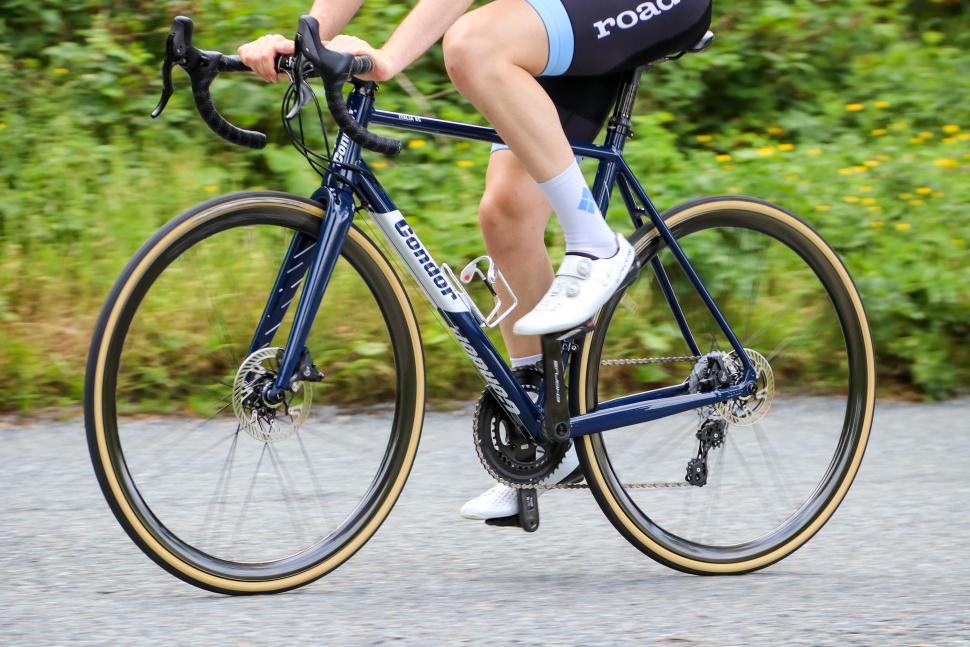
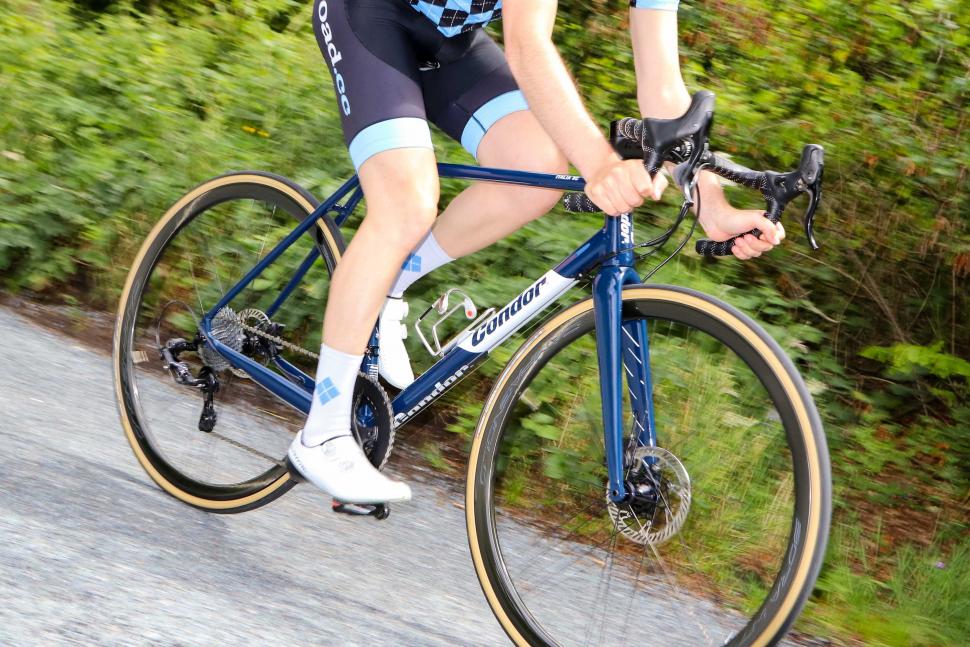
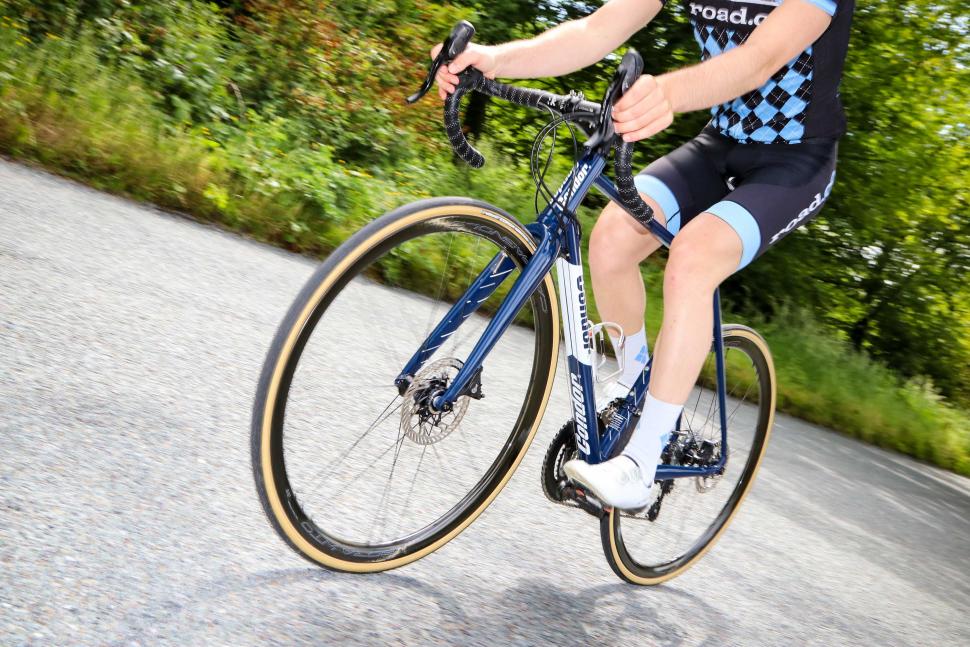

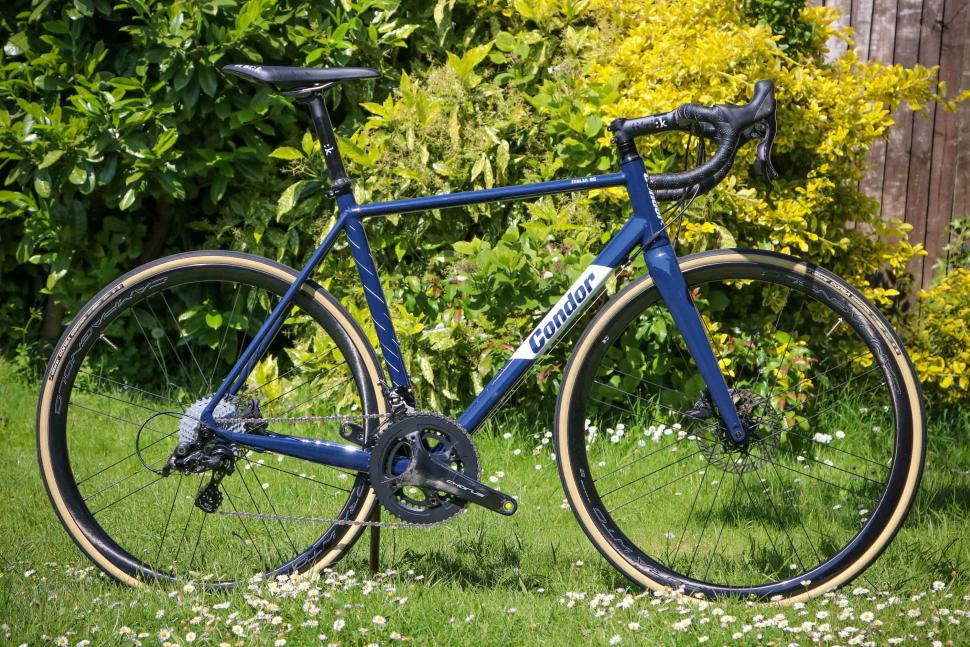
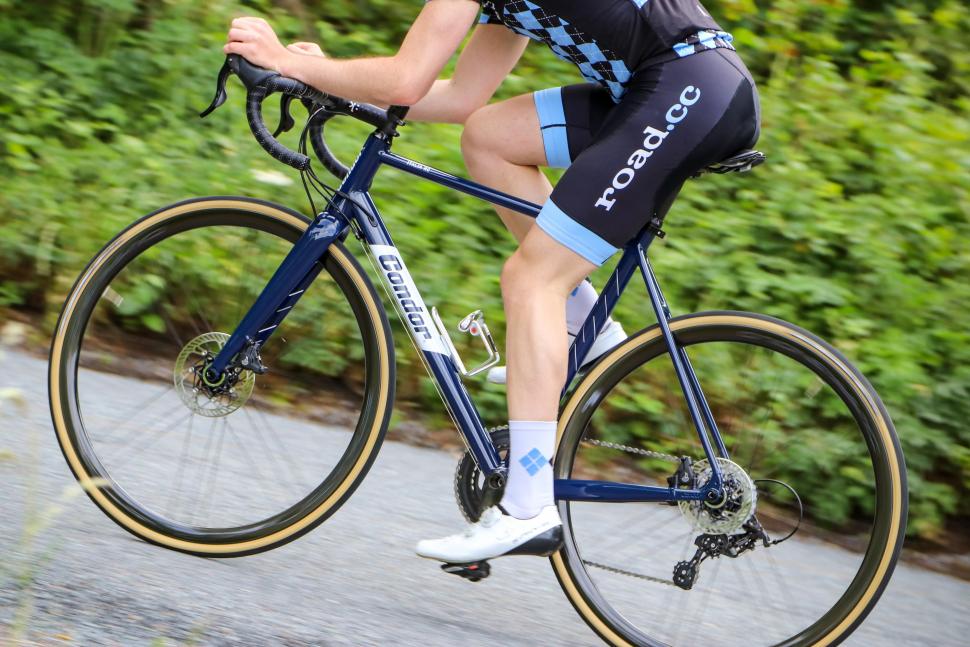
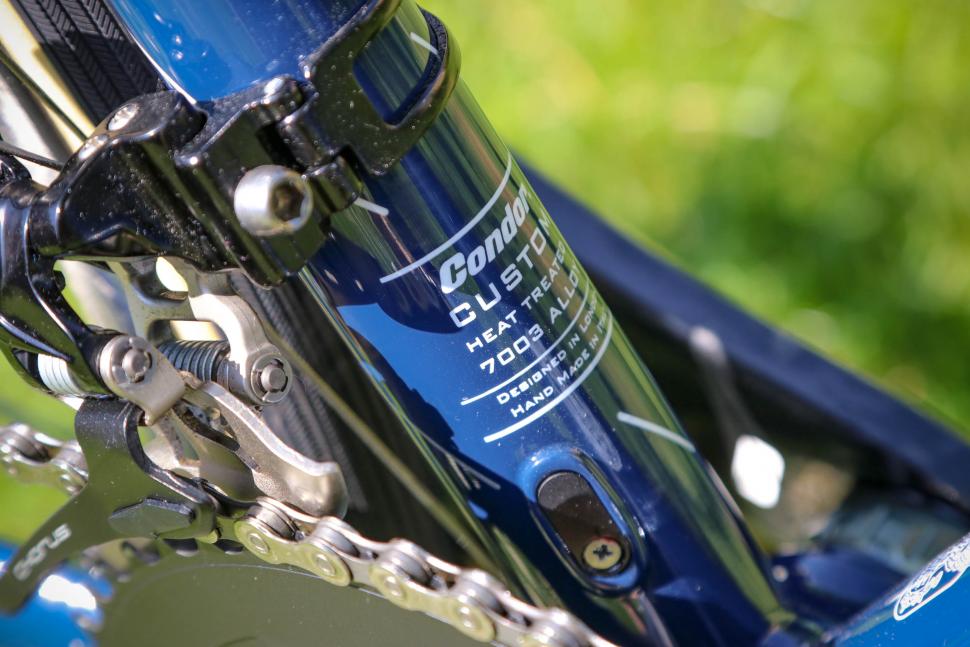


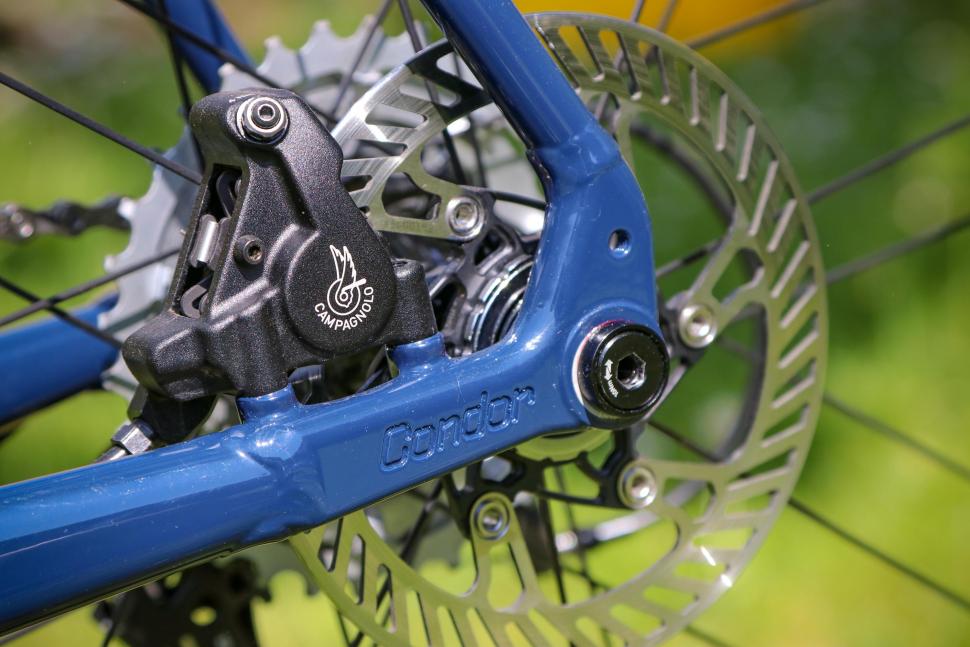
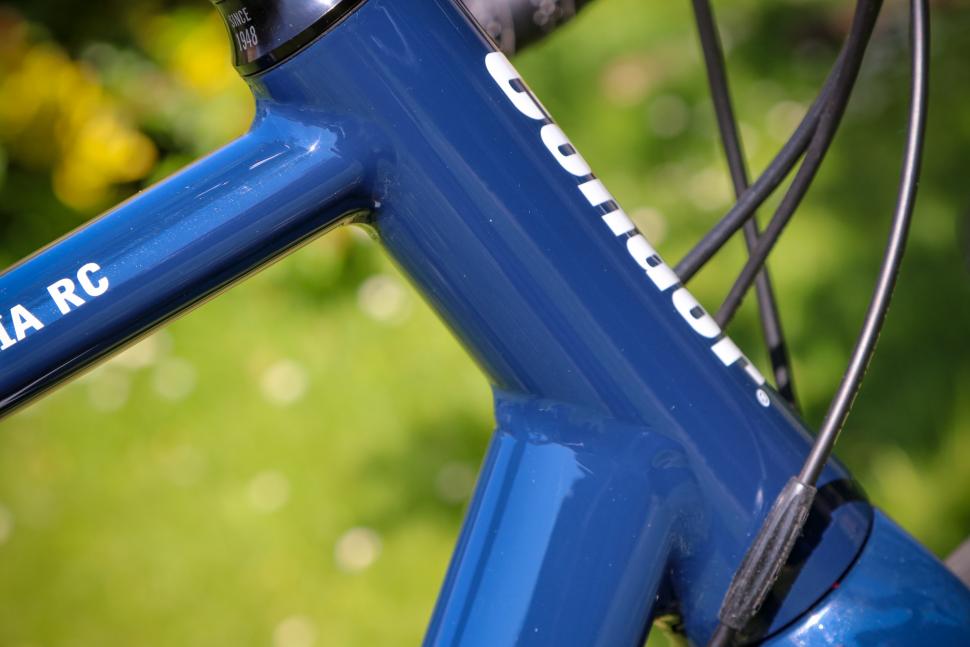
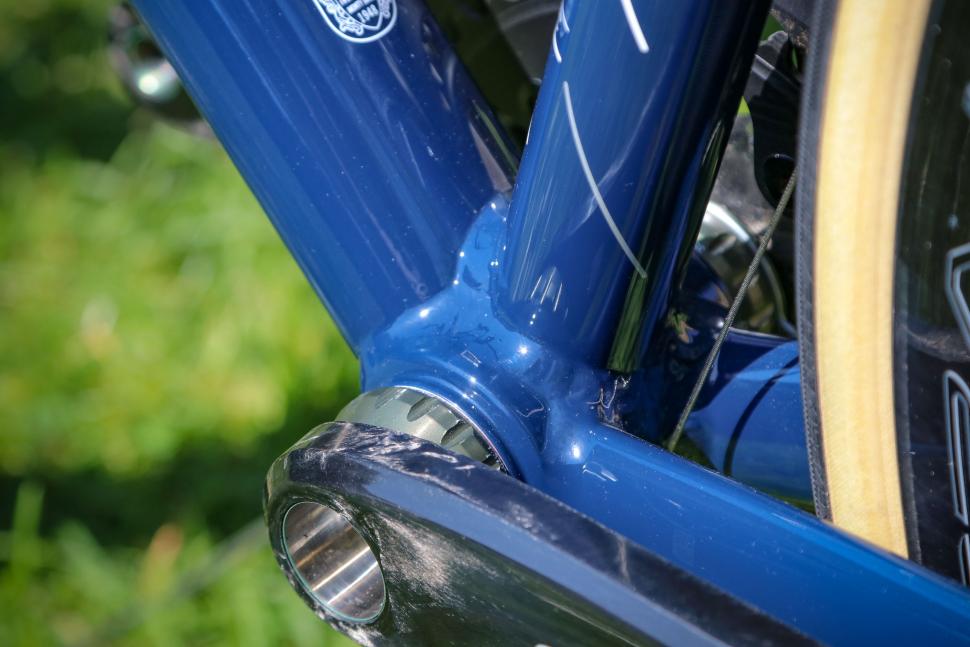
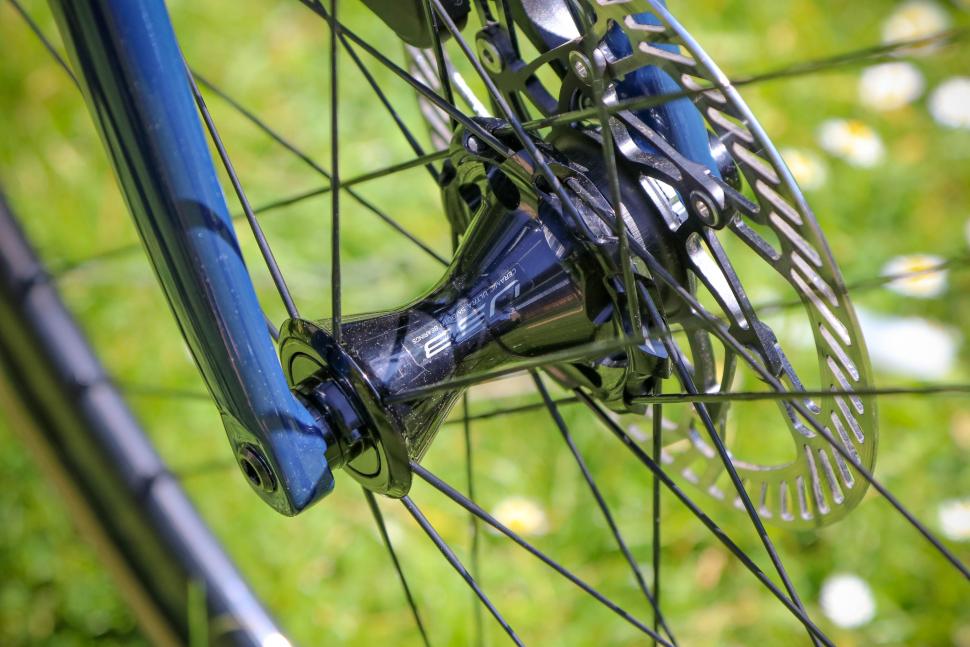


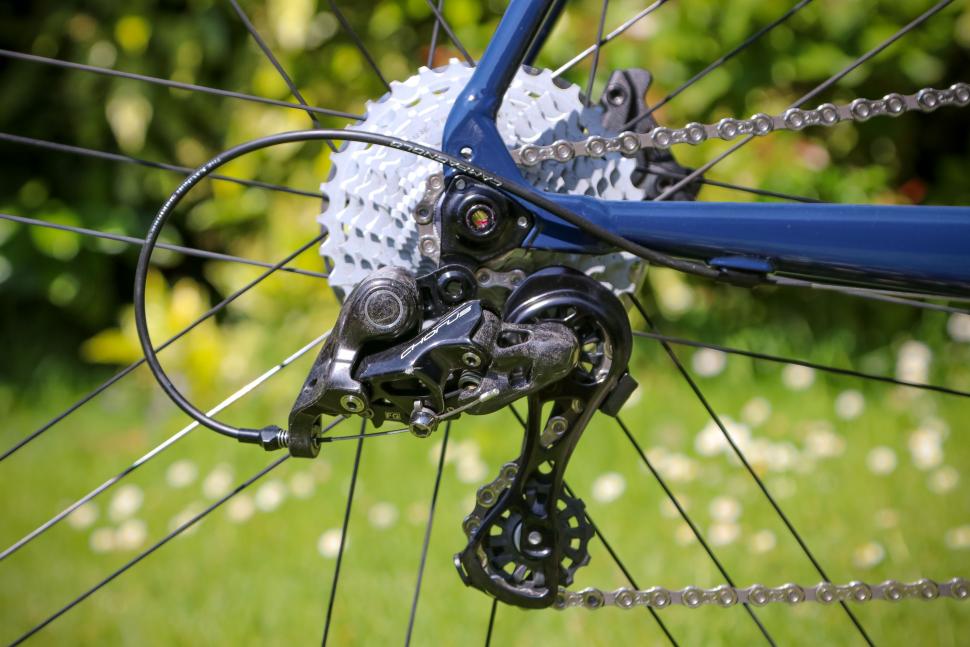


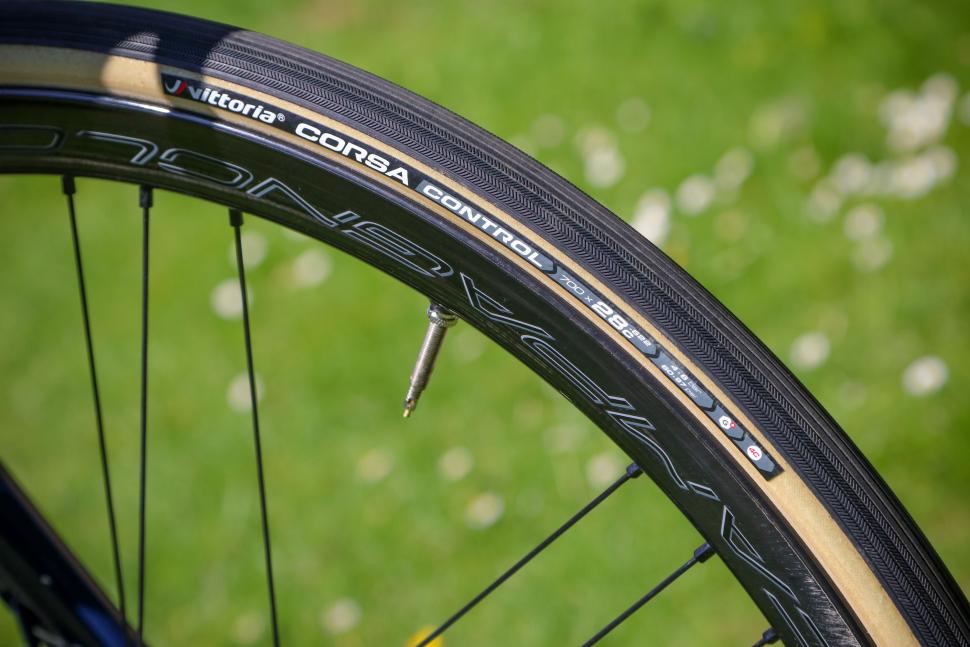
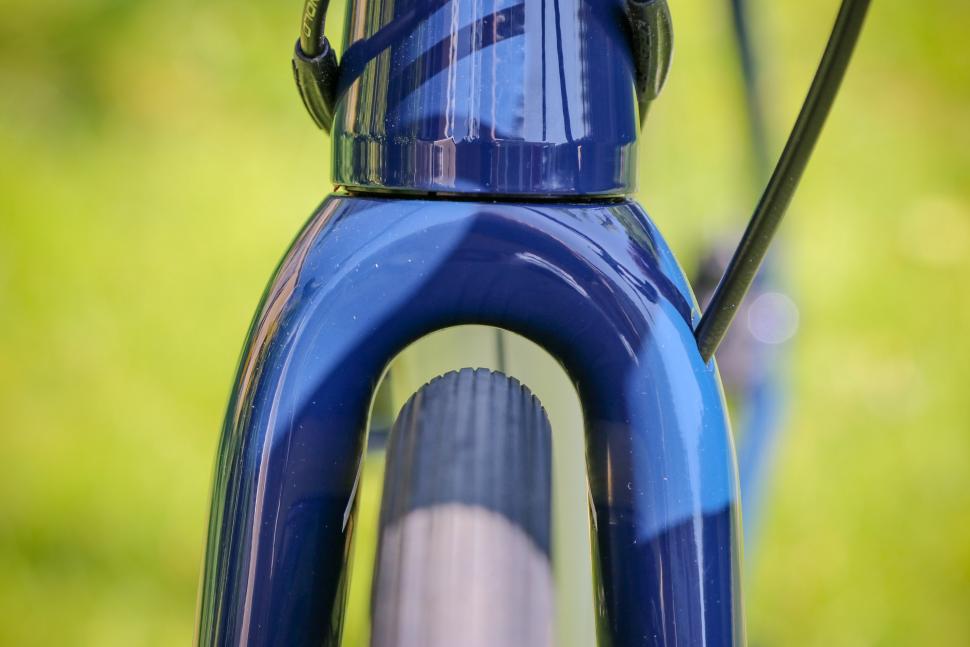


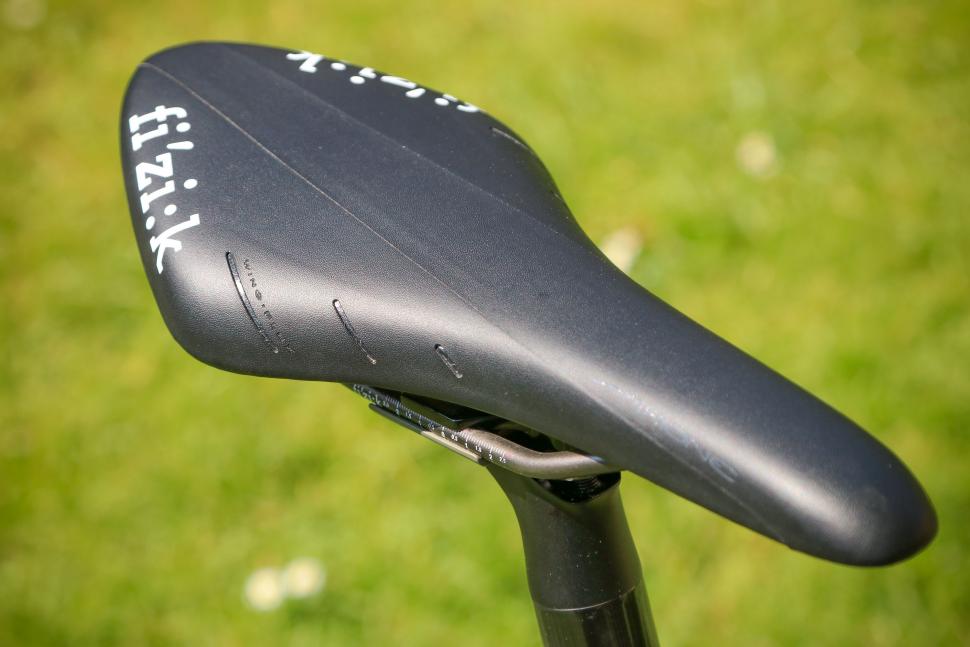
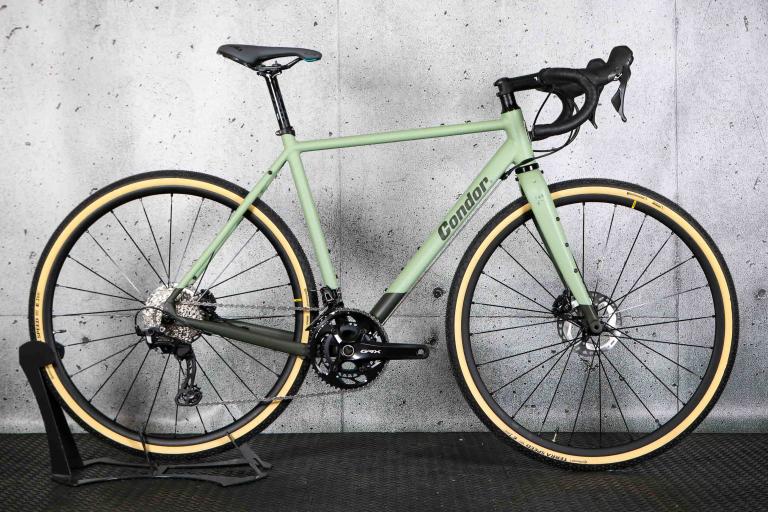
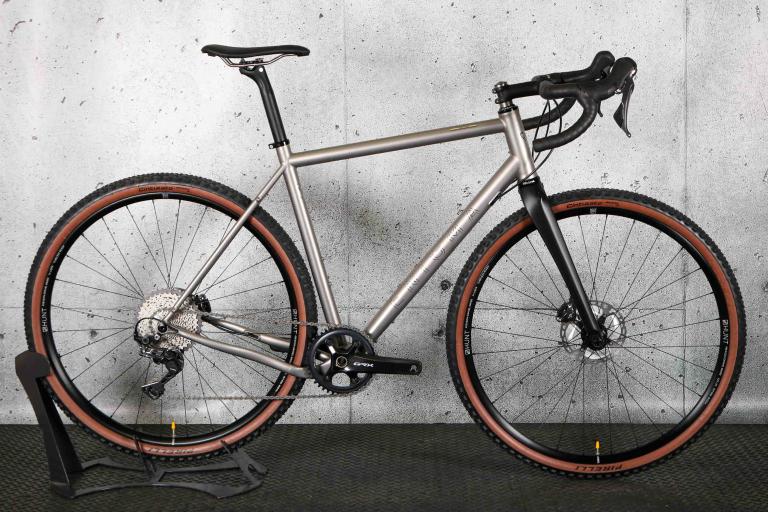
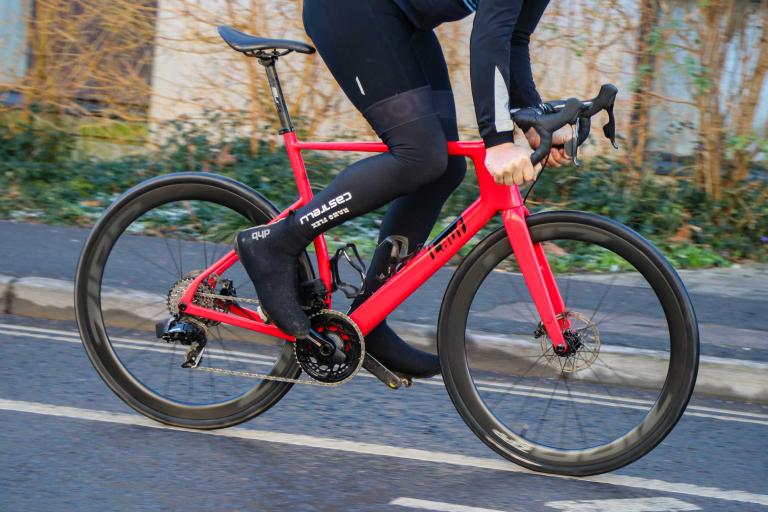
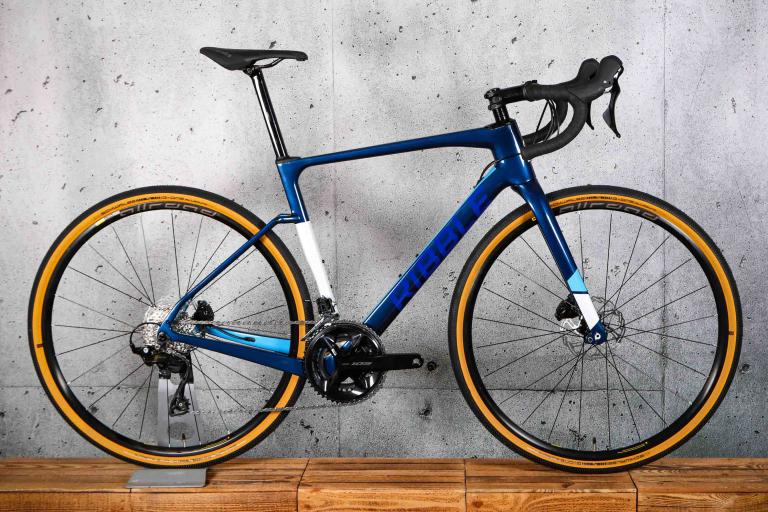
Add new comment
17 comments
any aluminium frame for 1200 notes is overpriced, but hey, may feel flipping brilliant, who knows. Welcome addition of campag mastery components.
To be fair to Condor (and I'm a little biased, owning a rim-brake Italia RC), they have the bricks and mortar shop you can go to, and included in the cost of a bike is a fit and the build.
I'm personally glad I did in the end, despite the price premium, since I fell between frame sizes (ended up going smaller than I would have thought) and the fit also covered things like bar width, crank length, hood angles etc. I felt there was value in that, as well as in supporting an independent shop, getting to speak to someone about my purchase and the follow-up service that was included. Worth bearing in mind stuff like that too, and not just the metal itself.
This is road.cc where posters know the price of everything & the value of nothing though. if something is deemed "overpriced" then you'd better believe it to be true.
It's a 'posh' build for an alu bike but I'm sure many would go for such a thing, it's a great looking bike. It does seem heavy but blame the disks, I reckon the rim version would be way more fun to ride - and cheaper no doubt.
Glazed over the dull standard anticampagnolo assessments. Chorus is without a doubt the best mechanical road groupset currently - ergonomic hoods, 12 speed, lightweight carbon fibre and multishift in either direction without the super expense of Record.
We could all buy bikes from Tesco/Trek/Cannondale fitted with Shimano etc but many people value performance and supporting smaller businesses like Condor and Campagnolo.
Chorus has taken a bit of a knock going to 12 speed, alloy levers now and the cranks have a unique BCD for smaller chainrings. Probably makes sense from a business point of view, it was always a bit too good for its own good
Campagnolo evokes an emotional response in many, but I'm not sure I'd go so far as to say it deserves support for being a scrappy little business. Campagnolo is only small to the extent that it lost market share to others who made more popular products.
What makes it a "scrappy little business"?
Yes it is lovely, and I could be temted, if I had the cash! One thing I like that has not been discused is cable routing. Condor have take the same path as fairlight cycles. It has a small port in the nook of the down tube up by the head tube. You can blank it (Sram AXS) small wire hole (electronic) or a cable bridge (mechanical). This is nice as the frame is not full of holes resulting in lots of blanking plates or wires - tubes coming out both sides of the down tube looking a mess. On the price these frames are made in Italy not the far east, this is not to undermine the builders in the far east they are some of the best in world but there costs I think are lower, even when you factor in shiping? On the rim brake vs disc, ahh it still goes on and on, yes I still like rim brakes on those hot summer days of joy (it may also be my age!!) but I also see the plus of discs, Today the weather is wet cold and this is July so disc would rule on a day like today! (sorry if there are any spell mistakes, my spell cheaker is not working on this device so my dyslexa raw)
The bump between hoods and bar is down to the shape of the bar clamping area not marrying up together with the hoods, it can happen with any combination of components and bars but generally it's a fault of the bars in my experience
I must admit, that's a lot of money for such an uninspiring paint job...not exactly lightweight either
Campagnolo's competitors use painted aluminium, a lower cost technology from the 20th century; have a look at thanksshimano on instagram for the dangers. Thin aluminium alloy walls just don't have the strength; that's why bike tech moved on from thin walled alloy frames and wheels to stiffer, stronger carbon fibre, and in the case of Campagnolo, to carbon groupsets.
Are you stating facts or expressing a bias? My SRAM chain sets and brake levers are carbon.
TBH i'm finding it a bit tricky trying to work what's bits are some random stream-of-conciousness nonsense and what's just plain wrong in there....
Sigh. Click www.instagram.com/thanksshimano
So your comment was about cranks primarily then, which has an element of truth in it, not the "thin walled alloy frames and wheels" you mention just after - which the bike industry is still using successfully and which don't seem to have any significant Shimano-specific issues. Also notable is the amount of companies who are producing carbon wheels, frames and groupset items apart from Campagnolo.
Isn't a better comparison something like the Mason Definition or similar frames from Kinesis or Genesis?
Kinesis Aithein at £800? Bowman Palace £845? I thought Masons were generally less racey. Does look a little overpriced though doesn't it.